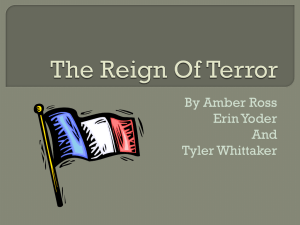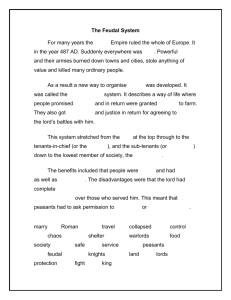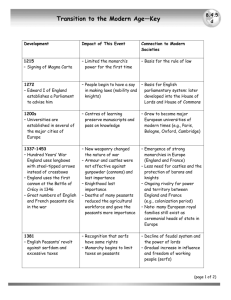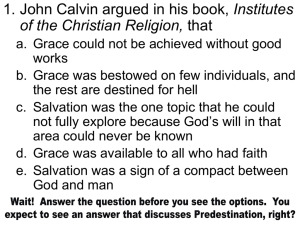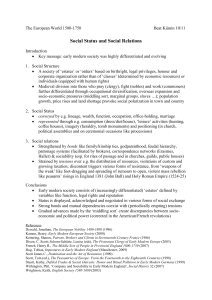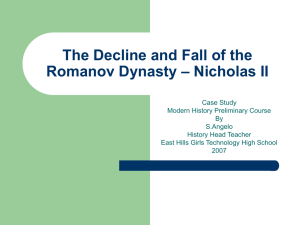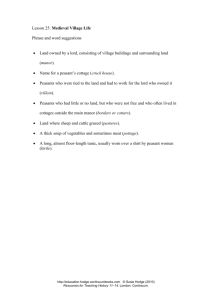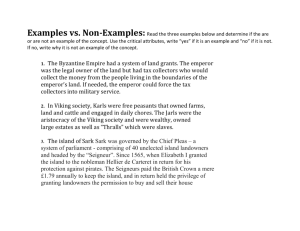Luther and Peasant Rebellions
advertisement
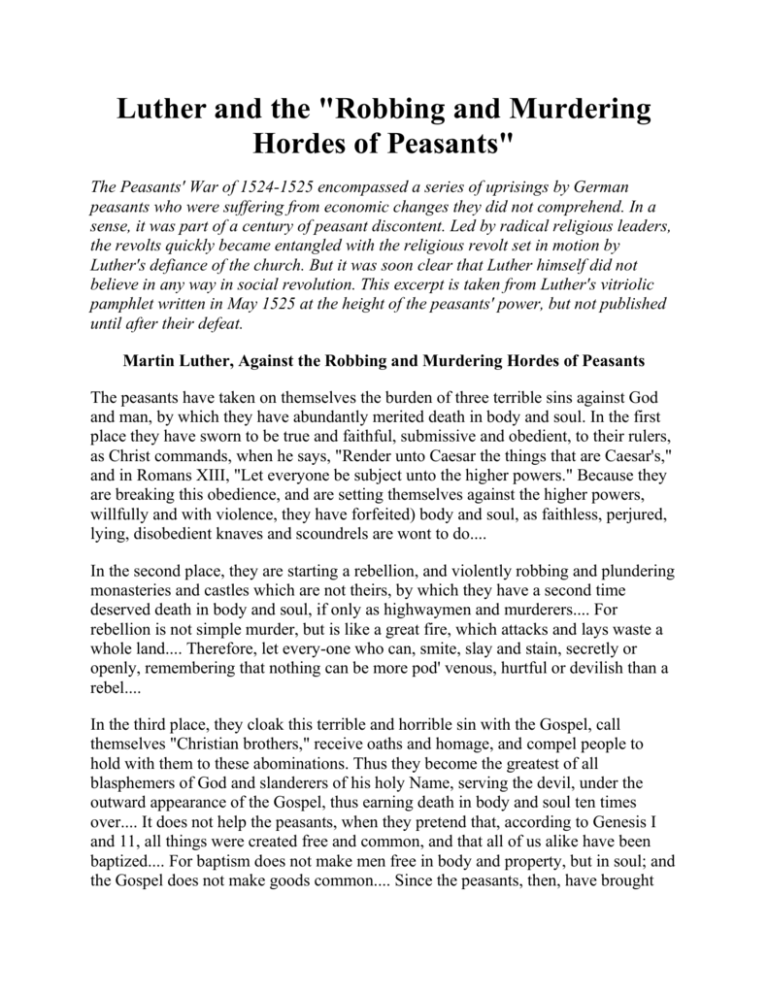
Luther and the "Robbing and Murdering Hordes of Peasants" The Peasants' War of 1524-1525 encompassed a series of uprisings by German peasants who were suffering from economic changes they did not comprehend. In a sense, it was part of a century of peasant discontent. Led by radical religious leaders, the revolts quickly became entangled with the religious revolt set in motion by Luther's defiance of the church. But it was soon clear that Luther himself did not believe in any way in social revolution. This excerpt is taken from Luther's vitriolic pamphlet written in May 1525 at the height of the peasants' power, but not published until after their defeat. Martin Luther, Against the Robbing and Murdering Hordes of Peasants The peasants have taken on themselves the burden of three terrible sins against God and man, by which they have abundantly merited death in body and soul. In the first place they have sworn to be true and faithful, submissive and obedient, to their rulers, as Christ commands, when he says, "Render unto Caesar the things that are Caesar's," and in Romans XIII, "Let everyone be subject unto the higher powers." Because they are breaking this obedience, and are setting themselves against the higher powers, willfully and with violence, they have forfeited) body and soul, as faithless, perjured, lying, disobedient knaves and scoundrels are wont to do.... In the second place, they are starting a rebellion, and violently robbing and plundering monasteries and castles which are not theirs, by which they have a second time deserved death in body and soul, if only as highwaymen and murderers.... For rebellion is not simple murder, but is like a great fire, which attacks and lays waste a whole land.... Therefore, let every-one who can, smite, slay and stain, secretly or openly, remembering that nothing can be more pod' venous, hurtful or devilish than a rebel.... In the third place, they cloak this terrible and horrible sin with the Gospel, call themselves "Christian brothers," receive oaths and homage, and compel people to hold with them to these abominations. Thus they become the greatest of all blasphemers of God and slanderers of his holy Name, serving the devil, under the outward appearance of the Gospel, thus earning death in body and soul ten times over.... It does not help the peasants, when they pretend that, according to Genesis I and 11, all things were created free and common, and that all of us alike have been baptized.... For baptism does not make men free in body and property, but in soul; and the Gospel does not make goods common.... Since the peasants, then, have brought both God and man down upon them and are already so many times guilty of death in body and soul,... I must instruct the worldly governors how they are to act in the matter with a clear conscience. First, I will not oppose a ruler who, even though he does not tolerate the Gospel, will smite and punish these peasants without offering to submit the case to judgment. For he is within his rights, since the peasants are not contending any longer for the Gospel, but have become faithless, perjured, disobedient, rebellious murderers, robbers and blasphemers, whom even heathen rulers have the right and power to punish; nay, it is their duty to punish them, for it is just for this purpose that they bear the sword, and are "the ministers of God upon him that doeth evil....'
